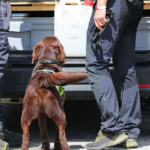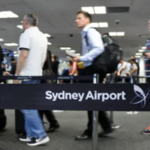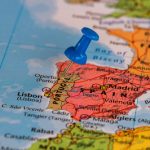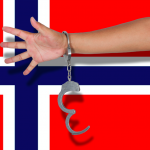Drug Seizures May Suggest a Drug War Victory – But the Reality is Very Different
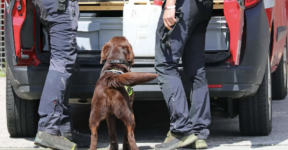
The mainstream media has for many years acted as a vehicle for law enforcement agencies across our nation to market drug raids as a positive step in the decades-long war against drugs.
But the fact of the matter is the drug war is long lost – with illicit drug importation, supply and use estimated to be higher than any other time in recent decades – and enforcement costs running into the hundreds of millions every year.
Indeed, nations that have moved away from enforcement and towards regulated markets have seen enormous social, economic and health benefits, treating drug use as a health issue rather than a criminal law problem, and thereby protecting users against harmful, unregulated substances and encouraging them to seek assistance and support, while reducing organised crime and associated violence, drastically cutting enforcement costs and generating revenue.
Experience also makes it clear that there will always be individuals as well as groups ready and willing to take the place of those disrupted as a result of drug raids – making the present war against drugs a futile one.
Latest Drug Bust
All of that said, the government and mainstream media are once again presenting a recent drug raid as a major win in the war against drugs.
The latest operation was a joint effort between New South Wales and Queensland police, which is reported to have resulted in the seizure of MDMA, cocaine and cash to the value of $9.2 million.
The collaborative operation, labelled Strike Force Oshawa, is said to have uncovered a criminal ring operating in both New South Wales and Queensland, who were responsible for transporting illegal drugs across eastern Australia.
Strike Force officers say they intercepted a delivery containing 5 kilograms of MDMA and 25 kilograms of cocaine early on the morning of Thursday, 10 October 2024, on the Queensland Gold Coast.
Police say that search warrants were then at homes in Caringbah in South Sydney and Rocklea in South Brisbane, uncovering more than $3 million in cash as well as prohibited drugs, including 1 kilogram of MDMA.
Three men are reported to have been arrested in connection with the operation.
A 26-year-old man arrested in Rocklea is facing charges which supplying prohibited drugs in large commercial quantities, participating in criminal group activity, and knowingly dealing with proceeds of crime.
A 53-year-old, who was arrested in Brighton le Sands was charged with supplying prohibited drugs in large commercial quantities, recklessly dealing with proceeds of crime greater than $5,000, and participating in criminal group activity.
And a 26-year-old man arrested in Queensland was charged with dealing with proceeds of crime worth more than $1 million, unlawful possession of weapons, and possession of items for use in the commission of a crime.
The Drug War is Failing
Despite the most recent large-scale drug bust succeeding in both NSW and Queensland, drug policies are failing in Australia.
Along with a landmark inquiry conducted in NSW finding that criminalising drug use caused ‘disproportionate harm’ and disregarded the causation — such as domestic violence, social disadvantages, abuse, and unemployment — the Australian Criminal Intelligence Commission’s National Wastewater Drug Monitoring Program showed how drug use is increasing within the country.
Report 21 of the National Wastewater Drug Monitoring Program showed a 17% increase in MDMA, methamphetamine, cocaine, and heroin consumption between 2022-2023. These reports should be the statistics used to determine an effective illicit drug law and subsequent enforcement strategy, as the previous law enforcement strategies clearly had no impact on the availability and consumption of illegal substances.
Other concerning statistics emerging from the research showed methamphetamine is highly used in urban areas, and drug use patterns are variable and dynamic in regard to other drugs, such as prescription opioids and cocaine.
Source: National Wastewater Drug Monitoring Program Report 21
The findings show interventions, public health initiatives, and a geo-specific frameworks are needed to curb illegal drug use — not ‘crackdown’ drug busts, drug seizures, and arrests. Although some government officials and citizens argue that without large-scale operations, drug use would be worse, others could argue the opposite.
The current law enforcement strategy in Australia aims to hand out heavy sentences for those who use, supply, or import drugs. In contrast, the real solution lies in interventions and identifying the root cause of the issues, such as bettering public health, improving mental health facilities, and aiding in homelessness.
Instead of criminalising individual possession of illegal substances, Australia could treat drug possession for personal use as a civil offence, reducing the negative stigma while focusing on society’s overall health and well-being. Furthermore, facilitating and funding harm reduction and mental health programs, such as safe injection rooms or counselling centres, can reduce the spread of disease and follow up with overall support.
Lastly, financing drug rehabilitation programs are essential to reducing drug use in the country, focusing more so on medication-assisted treatment, mental health care, therapy, and counselling — not criminalisation.
Overall, Australia’s law enforcement needs to shift the narrative from punishment to treatment to see any real change in the country’s drug use. Decriminalisation in Australia would not only reduce criminal justice system costs, but it can improve treatment access, remove negative stigmas associated with drug use, and reduce unnecessary charges for individual possession cases.

